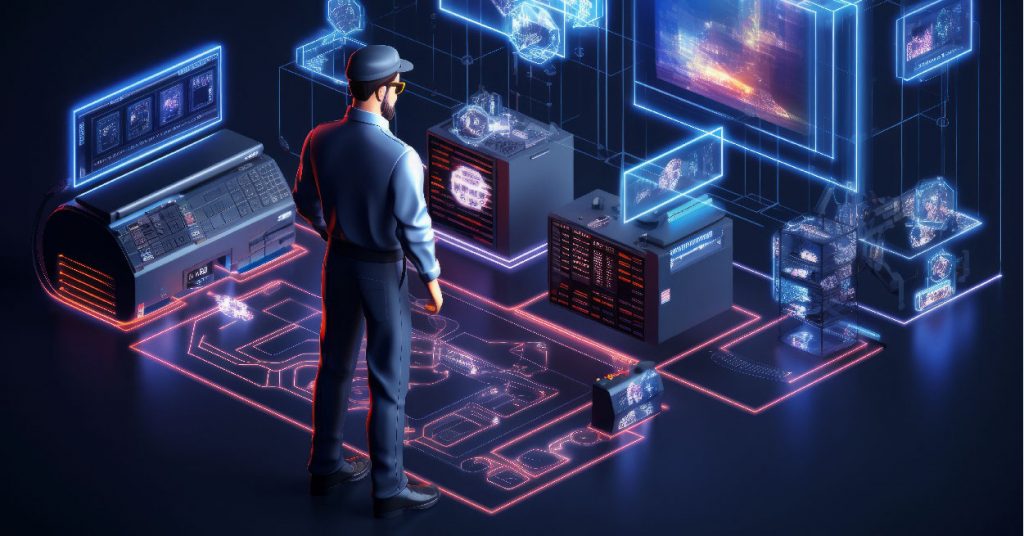Computer Science
20/06/2023 2024-05-14 17:23Computer Science
FACULTY OF INFORMATION TECHNOLOGY AND COMMUNICATION
Computer Science
Overview of Computer Science
Computer science (CS) is the study of computers and computational systems. Unlike electrical and computer engineers, computer science graduates/engineers primarily work with software and software systems; that is, they study and work on the theory, design, development, and application of software and software systems.
The main research areas in Computer Science include: Artificial intelligence, Computer systems and networks, Information security and assurance, Database systems, Human-computer interaction,Computer vision and graphics, Numerical analysis, Programming languages, Software engineering, Bioinformatics, Computational theory…
The computer science program at CMC University currently focuses on three main areas of study: Artificial Intelligence (AI) and Data Science (DS), Software Engineering (SE), and Information Systems (IS). Students in the computer science program will choose to study one of the three areas mentioned above.
Training orientations
Computer Science Training Program
Đại cương
Lý luận chính trị và pháp luật
- Triết học Mác – Lênin
- Kinh tế chính trị Mác – Lênin
- Chủ nghĩa xã hội khoa học
- Lịch sử Đảng Cộng sản Việt Nam
- Tư tưởng Hồ Chí Minh
- Pháp luật đại cương
Toán và khoa học cơ bản
- Giải tích
- Đại số tuyến tính
- Xác suất thống kê
- Phương pháp tính
Kỹ năng mềm
- Kỹ năng mềm và tư duy khởi nghiệp
- Giáo dục thể chất
- Giáo dục Quốc phòng và An ninh
Cơ sở khối ngành
Các học phần bắt buộc
- Toán rời rạc
- Nhập môn Công nghệ thông tin – Truyền thông
- Cấu trúc dữ liệu và giải thuật
- Cơ sở lập trình
- Cơ sở lập trình Web
- Lập trình hướng đối tượng
- Kiến trúc máy tính
- Hệ điều hành
- Cơ sở dữ liệu
- Công nghệ phần mềm
Học phần tự chọn chung (Sinh viên chọn 03/6 tín chỉ)
- Vật lý điện – điện tử
- Lập trình Python
Cơ sở ngành
Các học phần bắt buộc
- Pháp lý và Đạo đức nghề nghiệp
- Thuật toán ứng dụng
- An toàn thông tin
- Mạng máy tính và truyền thông
- Quản lý dự án CNTT
- Phân tích và thiết kế hệ thống
- Các hệ quản trị cơ sở dữ liệu
- Giao diện và trải nghiệm người dùng
- Lập trình C#
- Công nghệ và lập trình WEB
- Đồ án chuyên ngành
- Phân tích và thiết kế giải thuật
- Đồ họa máy tính
- Trí tuệ nhân tạo
- Học máy và khai phá dữ liệu
Các học phần tự chọn (Sinh viên chọn 03/09 tín chỉ)
- Điện toán đám mây
- Hệ thống số
- Lý thuyết độ phức tạp
Chuyên ngành
Các học phần tự chọn (Chọn 12 tín chỉ trong các nhóm sau)
Định hướng Trí tuệ nhân tạo và dữ liệu lớn
- Học sâu và ứng dụng
- Phân tích dữ liệu lớn
- Xử lý ngôn ngữ tự nhiên
- Thị giác máy tính
- Các hệ thống song song và phân tán
Định hướng Phát triển phần mềm
- Thiết kế và xây dựng phần mềm
- Kiểm thử phần mềm
- Phát triển ứng dụng di động
- Lập trình game
- Quản lý dịch vụ Công nghệ thông tin
Định hướng Hệ thống thông tin
- Nhập môn Hệ thống thông tin
- Cơ sở dữ liệu đa phương tiện
- Quản lý Hệ thống thông tin
- An toàn và bảo mật hệ thống thông tin
- Quản trị học
Thực tập nghề nghiệp và tốt nghiệp
- Thực tập nghề nghiệp
- Khóa luận tốt nghiệp
Knowledge, skills, and experience gained after graduation
The computer science program will provide students with fundamental and modern knowledge of the field, as well as specialized knowledge in artificial intelligence, data science, software development, and information systems. The program is designed with a balanced ratio of theory and practice. The teaching staff is mostly doctoral-level, with advanced training in developed countries, and extensive experience in teaching and research, especially in applied research. Students will study in a modern environment and gain hands-on experience under the guidance of experienced technology experts from CMC Technology Corporation and CMC Technology Corporation’s international partners.
The computer science program also equips students with the knowledge and skills necessary to pass the ITFE (Fundamental Information Technology Engineer) certification exam according to the Japanese information technology standards system (ITSS). Graduates will be able to apply their knowledge of computational science to solve real-world problems, have research, creativity, and adaptability to the ever-changing development of science and technology as well as international integration.




